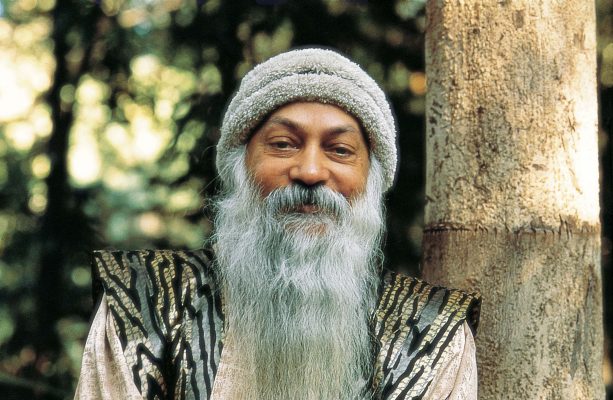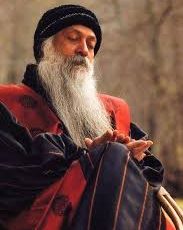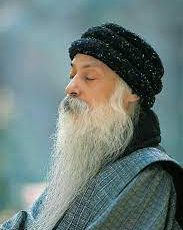BELOVED OSHO,
I AM A WEAKLING. YET I HAVE THE FEELING THAT I CAN, FOR THE FIRST TIME, RELAX INTO MY WEAKNESS HERE. MUST I BE STRONG AND COURAGEOUS?
There is no must here. All should, and must ought to have to be dropped. Only then do you become a natural being. And what is wrong in being weak? Everybody is weak. How can the part be strong? — the part has to be weak. And we are tiny parts, drops in this vast ocean. How can we be strong? — strong against whom, strong for what? Yes, you have been taught, I know, to be strong, because you have been taught to be violent, aggressive, warring. You have been taught to be strong because you have been taught to be competitive, ambitious, egoistic. You have been taught all kinds of aggressiveness because you have been brought up to rape others, to rape nature.
You have not been brought up to love. Here, the message is love — so what do you need strength for? The message here is surrender. The message here is acceptance, total acceptance of whatsoever is the case. Weakness is beautiful. Relax into it, accept it, enjoy it. It has its own beauties, its own joys.”I am a weakling….”Please, don’t even use that word weakling, because it has a condemnatory note in it. Say “I am a part,” and the part is bound to be helpless. In itself the part is bound to be impotent. The part is potent only with the whole. Your strength is in being with truth; there is no other strength. Truth is strong, we are weak. God is strong, we are weak. With him we are also strong; against him, without him, we are weak. Fight the river, try to go upstream and you will be proved a weakling. Float with the river and go downstream — don’t even swim, be in a letgo and let the river take you wherever it is going — and then there is no weakness. When the idea of being strong is dropped there is no weakness left. They both disappear together. And then, suddenly, you are neither weak nor strong. In fact, you are not; God is — neither weak nor strong.
You say: “Yet I have the feeling that I can for the first time relax into my weakness here.”
A good feeling; don’t lose track of it! A right feeling: relax — that’s my whole teaching.
Relax into your being, whoever you are. Don’t impose any ideals. Don’t drive yourself crazy; there is no need. Be — drop becoming.
We are not going anywhere, we are just being here. And this moment is so beautiful, is such a benediction; don’t bring any future into it, otherwise you will destroy it. Future is poisonous. Relax and enjoy. If I can help you to relax and enjoy, my work is done. If I can help you to drop your ideals, ideas about how you should be and how you should not be, if I can take away all the commandments that have been given to you, then my work is done. And when you are without any commandments, and when you live on the spur of the moment — natural, spontaneous, simple, ordinary — there is great celebration, you have arrived home.
Now don’t bring it again…”Must I be strong and courageous?” For what? In fact it is weakness that wants to be strong. Try to understand it; it is a little bit complex but let us go into it. It is weakness that wants to be strong, it is inferiority that wants to be superior, it is ignorance that wants to be knowledgeable — so that it can hide in knowledge, so that you can hide your weakness in your so-called power. Out of inferiority comes the desire to be superior. That is the whole substratum of politics in the world, power-politics. It is only inferior people who become politicians: they have a power urge, because they know they are inferior. If they don’t become the president of a country or the prime minister of a country, they cannot prove themselves to others. In themselves they feel weak; they drive themselves to power.
But how, by becoming a president, can you be powerful? Deep down you will know that your weakness is there. In fact it will be felt more, even more than before, because now there will be a contrast. On the outside there will be power, and in the inside there will be weakness — more clear, like a silver lining in a black cloud. That’s what happens: inside you feel poor and you start grabbing, you become greedy, you start possessing things, and you go on and on and on, and there is no end to it. And your whole life is wasted in things, in accumulation.
But the more you accumulate, the more penetratingly you feel the inner poverty. Against the riches it can be seen very easily. When you see this — that weakness tries to become strong — it is absurd. How can weakness become strong? Seeing it, you don’t want to become strong. And when you don’t want to become strong, weakness cannot stay in you. It can stay only with the idea of strength — they are together, like negative-positive poles of electricity. They exist together. If you drop this ambition to be strong, one day suddenly you will find weakness has also disappeared. It cannot keep hold in you. If you drop the idea of being rich, how can you go on thinking yourself poor? How will you compare, and how will you judge that you are poor? Against what? There will be no possibility to measure your poverty. Dropping the idea of richness, of being rich, one day poverty disappears.
When you don’t hanker for knowledge and you drop knowledgeability, how can you remain ignorant?
When knowledge disappears, in the wake of it, like its shadow, ignorance disappears. Then a man is wise. Wisdom is not knowledge; wisdom is the absence of both knowledge and ignorance. ( Heart-fullness sutra)
These are three possibilities: you can be ignorant, you can be ignorant and knowledgeable, and you can be without ignorance and knowledge. The third possibility is what wisdom is. That’s what Buddha calls prajnaparamita — the wisdom beyond, the transcendental wisdom.
It is not knowledge. First, drop this desire for strength, and watch. One day you will be surprised, you will start dancing: the weakness has disappeared. They are two aspects of the same coin: they live together, they go together. Once you have penetrated to this fact in your being, there is a great transformation.
Osho




